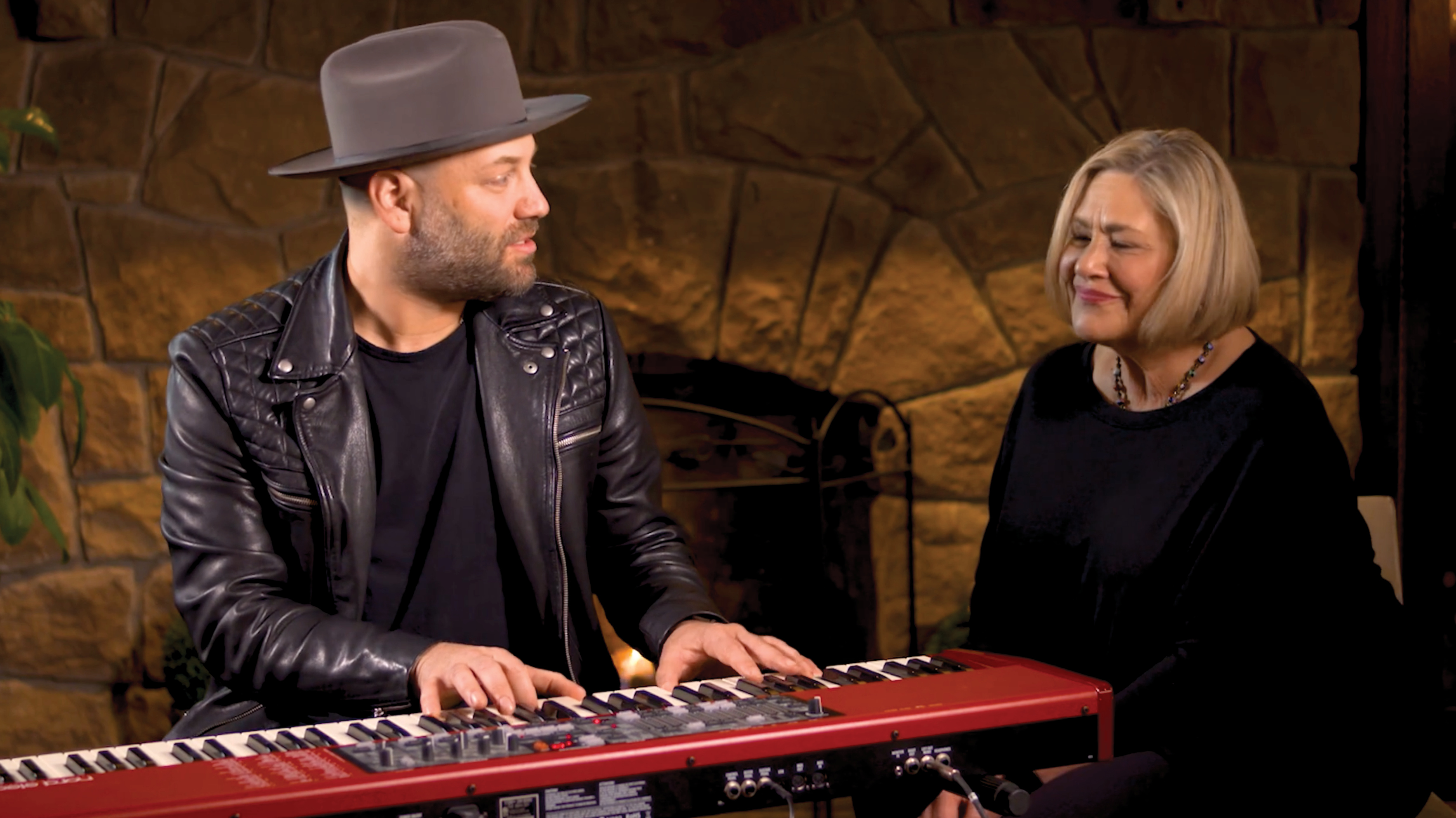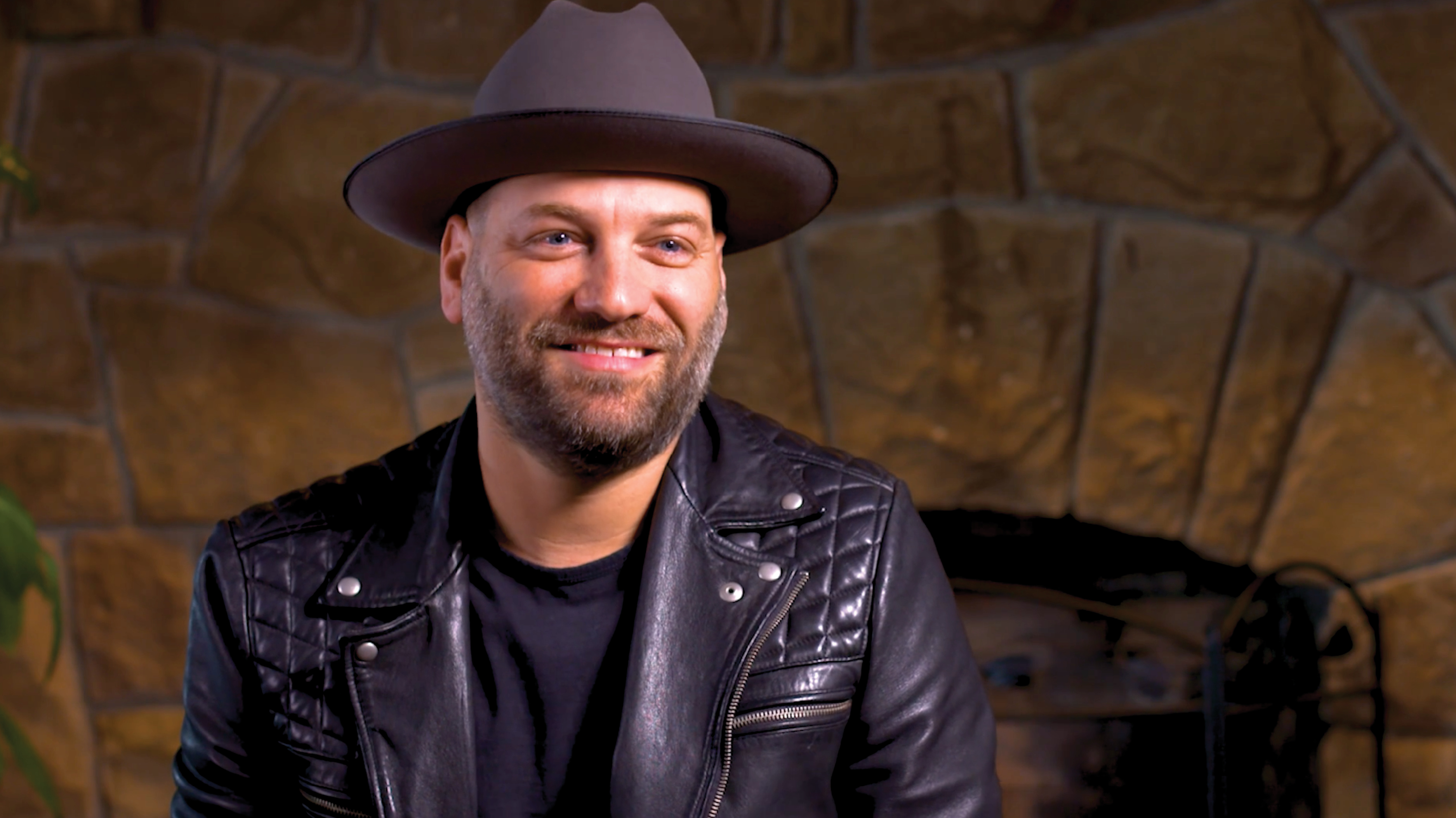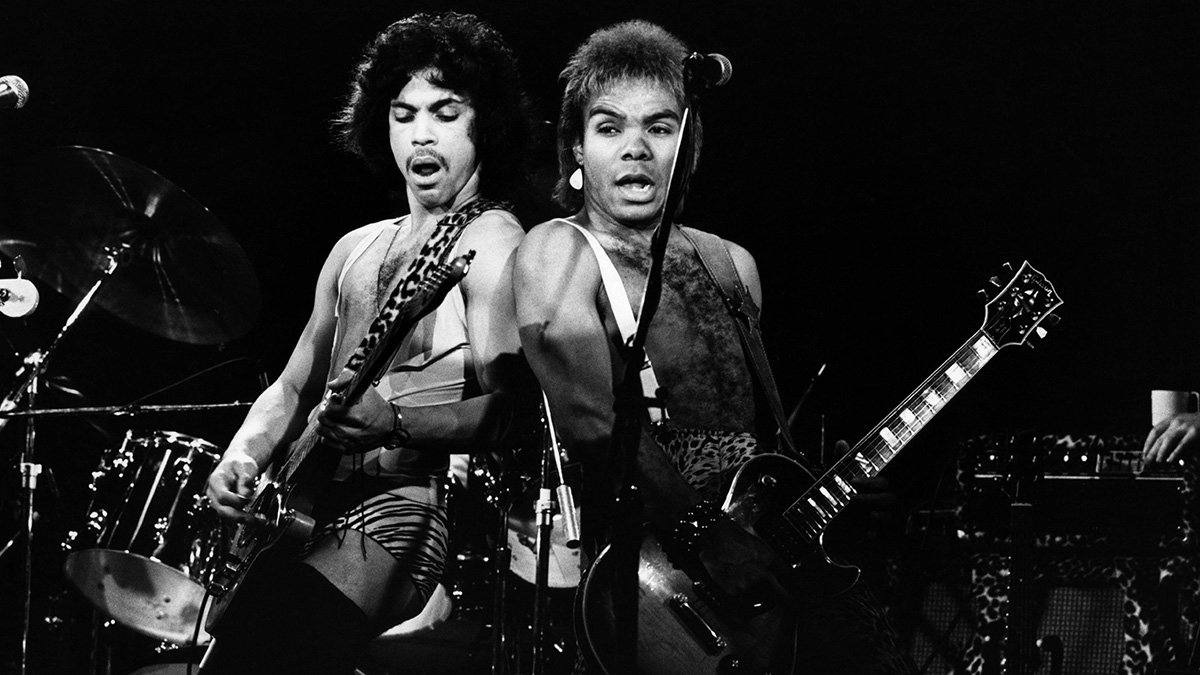How hearing loss almost silenced Paw Patrol vocalist Scott Simons: "Admitting you have hearing loss is the first step"
World Hearing Day: the vocalist behind one of kids TV's biggest theme tunes opens up about how hearing loss almost ended his career

Today is World Hearing Day, an annual event dedicated to raising awareness on how to prevent deafness and hearing loss. There are few for whom this day is more important than professional musicians, with scientific studies suggesting that they’re almost four times more likely to develop noise-induced hearing loss than the general public.
As a musician or producer, your ears are everything. Losing your hearing can be as traumatic as losing a limb, and it can not only cause prolonged distress and discomfort, but also bring your career to an abrupt and unfortunate end.
To hear more about the issue, we’ve spoken to musician and composer Scott Simons, who’s best known as the voice behind one of children’s television’s most recognisable theme tunes: Paw Patrol. Scott has spent much of his life suffering from gradual and genetic hearing loss that once severely threatened his ability to write, record and perform.
Thankfully, through the use of sophisticated hearing aids, he’s overcome these challenges to find success, and in addition to his work on Paw Patrol, has joined the production team at America’s Got Talent, working with contestants to support, arrange, produce their performances.
Scott joined us for World Hearing Day to speak about his experiences with hearing loss and offer advice to musicians and producers concerned about hearing health.
Could you give us some background on yourself and your work in the music industry?
“My passion for music started in school band, growing up in West Virginia. When I was 15, my dad started to put me in cover bands, where we’d play in bars all around our local area. That’s really where I cut my teeth performing in front of live audiences. From there, I moved on to West Virginia University and majored in Music Composition. I always knew I wanted to write my own music, and my degree reflected that.
Get the MusicRadar Newsletter
Want all the hottest music and gear news, reviews, deals, features and more, direct to your inbox? Sign up here.
“After college, I started a band called The Argument. We were together for ten years, touring 25 states and running four 15-passenger vans into the ground. We showcased for major labels and had a good amount of success but never got that major record deal. After breaking up, I used the contacts I made over the years to begin writing and pitching songs for other artists, which was really what I always wanted. That led me to Los Angeles, where I’ve been for the last 13 and a half years.
It’s a cartoon about dogs. How popular can that be?
“In my first few years in LA, I was just trying to stay afloat with piano bar gigs and any writing session I could get involved with. Then I got a call to be a rehearsal pianist for contestants on a competition show. When I got there, I found out it was for the American version of The X-Factor. I worked on the show for three seasons assisting producers, playing live and coaching acts.
“When that show ended, I was brought over to America’s Got Talent, another Simon Cowell show. I’m now in my tenth year consulting with acts, helping them find the right song and working on their arrangements. Sometimes, I even play on stage with those auditioning.”
How did you get involved with Paw Patrol?
“It was just a random gig that popped up for me. I was hired to do a vocal demo for a children’s TV show theme. A friend of mine had already written the song, and I thought my voice would only be used in a demo to show Nickelodeon executives. Not only did they like the song, but they also wanted to keep me as the vocalist.
“I don’t think anyone knew the show would become as massive as it is today. I just saw it as another job, and I’d go back to my everyday life after the session. It’s a cartoon about dogs. How popular can that be?
As musicians we have to take our hearing health into our own hands - admitting you have hearing loss is the first step
“The show wasn’t an instant hit. They didn’t even have merchandise at first. But then I was at a friend’s house, and his four-year-old was playing with a Paw Patrol fire truck, and I thought how cool it was that they had merch. Suddenly, he pushed a button, and out came my voice singing the song.
“It exploded from there. I started getting messages from people I went to college with saying that they watched me play years ago, and now their kids hear me every day. Cameo reached out to me a few years ago asking if I’d like to do videos for kids. Now I do them for people all over the world. It’s a super rewarding experience, and the kids love it.
How long did it take you to nail the theme song?
“The recording session was only about an hour. I remember having no idea what the show was about. I didn’t see any drawings or plot synopsis. I didn’t know anything. I just saw lyrics on a page. What you hear in the song is not actually how my voice sounds. It’s the opening of a kid show, so I decided to put on this super excited, energetic voice in hopes of creating a good template for someone else to use. I never thought it would actually be my voice. I guess we must’ve gotten it pretty good on the demo.”
Tell us about your experience working on America’s Got Talent.
“The best part about the job is that no day is the same. No other show has the variety that AGT does. We have music, magic, dance, comedy, daredevils and so much more. The singers alone vary greatly. Some want to be pop stars, but we get everything from country to R&B to opera and musical theater singers.
You don’t really know the impact of hearing loss until you hear what you were missing
“I also really enjoy being able to use my degree and full breadth of my skill set. Some days it’s preparing people to perform in front of a live audience, which some have never done. Other days it’s finding the right key or cutting the song down to fit TV time constraints. So many things can come up when getting live performers ready, which really keeps me on my toes.”
Your bio mentions you’ve been sampled by Wiz Khalifa, how did that come about?
“I’m in a band now called Teammate, and we used to be signed to the same record label (Rostrum) that discovered Wiz Khalifa. Wiz was working on the O.N.I.F.C album when he and his producer were looking for a sample to use for the introduction of the record.
"They wanted something really vocal-heavy. We had this Beach Boys-esque vocal segment in one of our songs that our label thought would be perfect. They submitted it but we didn’t actually know if Wiz used it until the record came out. It’s a great thing to have on the resume.”

When did you first discover that you suffered from hearing loss?
“I first discovered it in kindergarten when my teacher thought I either couldn't hear or was ignoring her. That set off a few alarm bells in my family because both my mother and maternal grandfather had hearing loss. They tested my hearing, and sure enough, I followed in their footsteps.
“Fortunately, we caught it early enough that it didn't negatively affect my development. But, as I grew older and class sizes got larger, it became harder and harder to hear. Right before college, I got one hearing aid, even though I knew I needed one for both ears. It was pure vanity.”
How did this impact you as a musician and performer?
“You don’t really know the impact of hearing loss until you hear what you were missing. For the longest time, I was performing and making music to the best of my ability. I could get by hearing the rhythms and beats, and I could find my pitch well enough. However, when I got older, and my career began to develop, I started producing more.
“That forced me to pay attention to frequency ranges, and it was there that I noticed I couldn’t hear higher frequencies well. Plus, so much of producing is the collaboration amongst artists. When you’re in a writing or producing session, a lot of important information is being said, and you need to be able to pick up on it. If you can’t fully understand what everyone is saying, you’re doing them and yourself a disservice.”
How did finding the right hearing aids change your life?
“For me, treating my hearing with the Widex Moment hearing aids made me a better collaborator. In between the music, I can fully engage in the conversation and participate in the back and forth. To me, that's one of the best things about regaining your hearing.
“Without hearing aids, you tend to withdraw from conversation for fear of embarrassment and give up on the interaction that's so important to both our personal and professional lives. It comes off to others like you're not paying attention or sloppy with details because you missed something. In reality, you just couldn't hear them, but you didn't want to stop the flow of conversation.
“The Moments have also made it easier to understand where sound is coming from. Separation of sounds in a busy environment was always challenging. For example, in a restaurant, I can easily focus on the conversation while also hearing everything else around me.
Admitting you have hearing loss is the first step. Many people are in denial or don’t want to deal with it
“Listening to music is much more pleasurable, as well. With my old hearing aid brand, I used to take them out whenever I turned on the radio because they just didn't do the songs justice. Widex Moment allows me to hear the music without any distortion. It's as close to natural hearing as you can get. The compatible Widex Moment app also has a music setting that I can turn on to help with equalization and give me the most accurate picture of what the music sounds like.
“That said, I need to give a big shout-out to Dr. Julie Glick of Musicians Hearing Solutions in Beverly Hills. She suggested I try Widex Moment after learning about my lifestyle and desired features. Without her, I would’ve never experienced the natural, smooth and clear sound that only Widex Moment can deliver.”
How can musicians and producers protect their hearing to prevent hearing loss?
“Musicians are more likely to have hearing loss than our non-musical counterparts. We play and listen to music for hours every day, and it’s essential to do it safely. Almost any instrument can harm hearing, if played loud enough and over a long enough period.
“That’s why we have to take our hearing health into our own hands. If you’re a performer, your top priority is to put on an entertaining show. But if you’re not wearing the correct earplugs or even the cheap ones you can buy at the drugstore, you’re doing yourself a massive disservice.
“Stage positioning is also important. Sound is louder when someone stands directly in front of or behind a speaker. Musicians should always angle the speakers away from them. Plus, frequent listening breaks can give your ears a rest.”
What advice do you have for others suffering from the condition?
“A lot of friends do ask me for advice. Admitting you have hearing loss is the first step. Many people are in denial or don’t want to deal with it. The second step is to stay calm about your situation. Hearing loss is extremely common, and there are concrete things you can do to help yourself.
Musicians are more likely to have hearing loss than our non-musical counterparts. We play and listen to music for hours every day, and it’s essential to do it safely
“That’s why I always advise getting your hearing tested. A certified hearing care professional can tell you your loss level and what’s needed to address it. Oftentimes, that’s hearing aids, which made a tremendous difference for me. My audiologist, Dr. Julie Glick, has been practicing for 25 years and works only with the industry’s top-of-the-line manufacturers. This allows her to choose which company will deliver the best results based on each patient’s unique hearing needs. There are professionals like her all around the world eager to assist.
“We all need to do a better job of debunking the stigma around wearing hearing devices. I understand that stigma. I never wanted to be the guy that walked into writing rooms or going on dates with two bulky hearing aids.
“But my Widex Moments are so small that most people don’t notice them, and the technology has improved astronomically over the last twenty years. The benefits that the devices provide should far outweigh any concerns about how you look.”
Find out more about World Hearing Day on the World Health Organization's website.
Visit Widex’s website to find out more about their hearing aids.
MusicRadar is the number one website for music-makers of all kinds, be they guitarists, drummers, keyboard players, DJs or producers...
- GEAR: We help musicians find the best gear with top-ranking gear round-ups and high-quality, authoritative reviews by a wide team of highly experienced experts.
- TIPS: We also provide tuition, from bite-sized tips to advanced work-outs and guidance from recognised musicians and stars.
- STARS: We talk to musicians and stars about their creative processes, and the nuts and bolts of their gear and technique. We give fans an insight into the craft of music-making that no other music website can.
“I actually specifically remember making a deal with myself": Billie Eilish reveals what she had to do in order to become “looser and jazzier” with her vocal delivery
Softube’s latest plugins are a pair of must-have vocal effects – and right now you can grab them as a bargain introductory bundle










